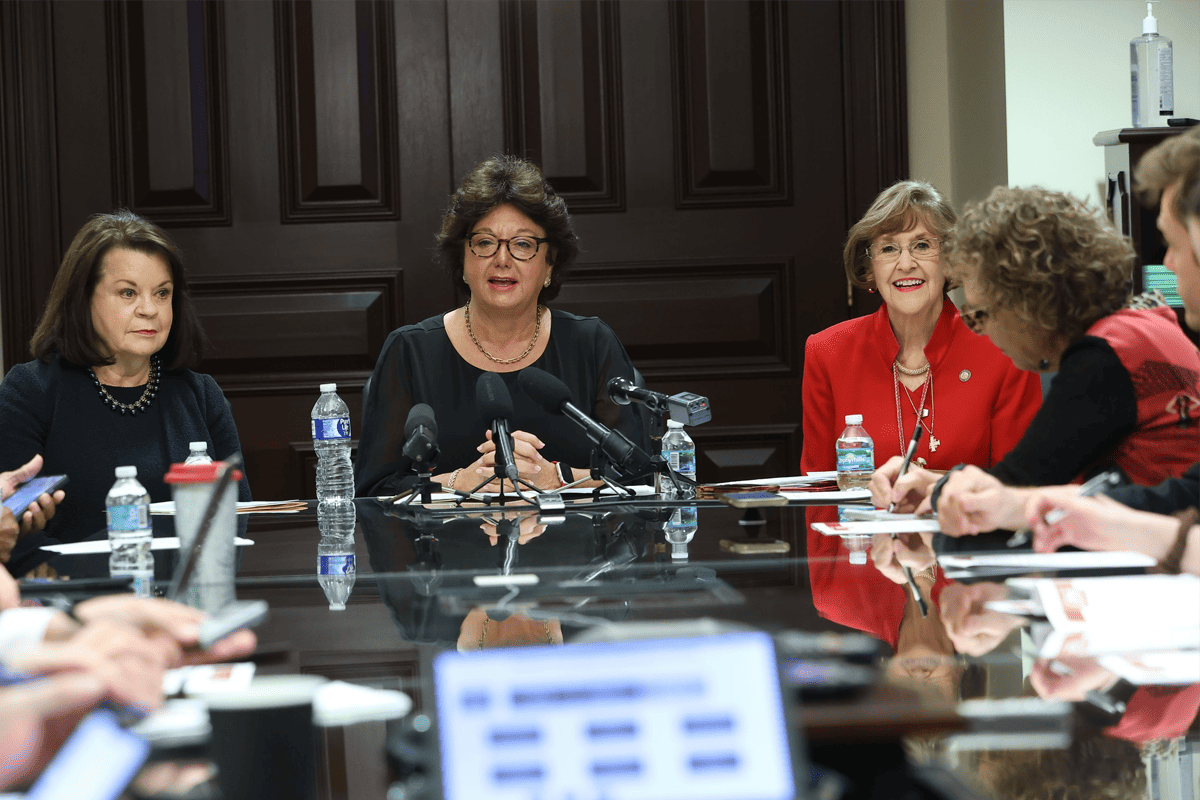Florida Senate unveils health care policy that targets $800 million for training, deregulation

TALLAHASSEE, Fla. – Florida Senate President Kathleen Passidomo, R-Naples, along with other lawmakers unveiled the senate’s “Live Healthy” policy proposal targeting many of the major healthcare issues that Florida is facing.
Passidomo was joined by Sens. Colleen Burton, R-Lakeland, and Gayle Harrell, R-Stuart, the chairs of the Senate Committee on Health Policy and the Senate Appropriations Committee on Health and Human Services, respectively.
“Live Healthy will expand Florida’s healthcare workforce with new opportunities for education, training and retention,” Passidomo said in a press release.
“This includes enhancing partnerships between our hospitals and Florida colleges and universities that train health care workers, as well as more residency slots and creative loan payment options that drive providers to undeserved areas,” she said.
Passidomo’s statement said insurance does not “guarantee access,” saying Floridians can still face barriers to care.
“Live Healthy is a robust package of policy enhancements and strategic investments that will help make sure Florida’s health care workforce is growing at the same pace as the rest of our great state,” she added.
SPB 7016, sponsored by Burton, would appropriate $796.7 million for health care workforce training and deregulation in order to increase employment mobility.
SPB 7018, carried by Harrell, would coordinate $76.25 million in loans for technological innovation in the sector.
Additionally, the proposal plans to introduce legislation that would provide a “streamlined pathway” for out-of-state insurance providers to offer coverage in Florida, as well as a bill increasing health care price transparency.
The senators were pressed by reporters during a media briefing on Thursday about whether the proposal addressed the concerns of access to health care for poorer residents in the state.
“The bills [are] designed to create greater access for every Floridian, whether they have insurance or are underinsured,” Burton responded. “Part of [the hospitals’] issue with not being able to care for Floridians who are uninsured or underinsured is just lack of personnel.”
“We are providing them additional opportunities to bring in personnel, and not only that, additional dollars to help offset […] the expenses that they will incur by offering that.”
Passidomo also spent time during the briefing emphasizing how she seeks to pass legislation that would help medical school graduates pay off their student loans by volunteering their time in rural, underserved communities.
Some states have turned to Medicaid expansion over the years. Rep. Joel Rudman, R-Navarre, has become a vocal proponent of Medicaid expansion in Florida. However, a spokesperson for Passidomo’s office said that the Senate president does not support it.
”Her priority is expanding Florida’s health care workforce, which is not growing at the same rate as the rest of our state,” Passidomo’s spokesperson said.
Rudman argued that Medicaid expansion would not only provide more care to impoverished citizens, but would also create stability for rural hospitals and prevent them from having to close their doors.
“Under current Florida guidelines, the only adults who qualify for Medicaid in the state either are those that are permanently disabled […] or those adults who have dependent children, and even in that situation, those adults must earn less than $3,600 a year,” Rudman told Florida’s Voice.
“These are people that we would typically describe as you’re ‘working poor,’” he said. “These are people holding down two jobs. These are single mothers. These are people who are working as your waitresses in your restaurants, but yet their jobs do not offer health insurance.”
“That bar is set extremely low,” Rudman said. “It’s almost as if we’re encouraging those single mothers not to look for work. Because any job they accept is certainly going to pay more than $3,600 a year.”
Rudman said he hopes that more Republicans will be openly supportive of Medicaid expansion within the state, even as he faces an uphill battle to convince the party’s leadership, including Passidomo, that it’s the right move.



